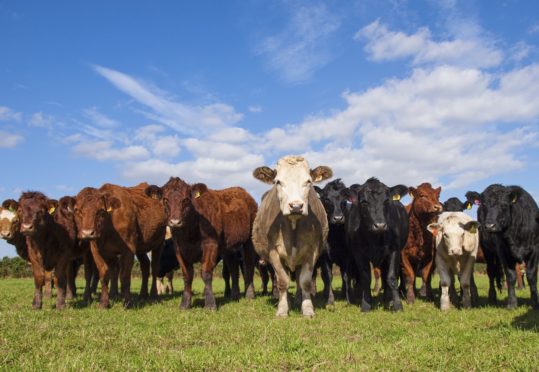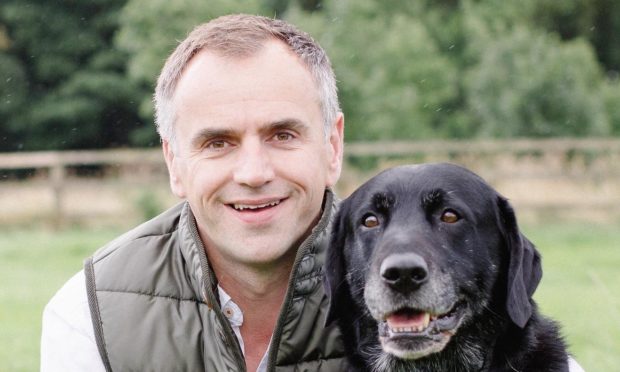A group of farmers has called on governments across the UK to adopt a dual approach to measuring emissions from livestock and a voluntary cap on cattle and sheep numbers.
A report from the Commercial Farmers Group (CFG) – a group of farmers working to promote a resilient UK agriculture industry – calls for two different models to be used side-by-side when measuring greenhouse gas emissions from cattle and sheep enterprises.
The report calls for the commonly used GWP100 accounting method and the GWP* method to be used in tandem – an approach already used to measure emissions from livestock in New Zealand.
In its report, CFG also proposes a UK-wide voluntary cap on livestock numbers – on a national herd and flock basis, rather than individual farm basis – if GWP* is adopted.
CFG member Andrew Loftus, who farms in Yorkshire, said the GWP100 method offers a reliable way of measuring gases that last hundreds or thousands of years in the earth’s atmosphere, such as carbon dioxide and nitrous oxide, however it does not work for “biogenic” methane from ruminant livestock.
He said CFG wants the measure used alongside GWP* – a method developed by scientists at the Oxford Martin School at the University of Oxford, to measure the “true warming impact” of individual gases, such as methane.
The CFG report claims any reductions in methane output from cattle and sheep could provide a “cooling effect”, similar to tree planting.
It says adopting the GWP technique would not let the ruminant sectors rest easy because, for example, any increase in livestock numbers without methane mitigation measures would be recognised as causing significant warming of the climate.
Mr Loftus said failure to adopt an accurate method for measuring methane from livestock would hinder the farming sector’s ability to ascertain the success of any climate change mitigation measures.
These include changes to feed or the use of supplements, selective breeding, improved animal health, and better manure management.
He called on politicians to adopt this dual approach to measuring emissions from livestock ahead of the UK hosting the G7 summit in Cornwall in June and the COP26 climate event in Glasgow in November.
“Accurate measurement would unlock new technologies to mitigate [climate] warming and balance high quality, home-grown protein production with the complexities of optimising land use and reinstating biodiversity,” added Mr Loftus.
“It would show tremendous leadership if the UK became the first G7 country to implement dual accounting.”











